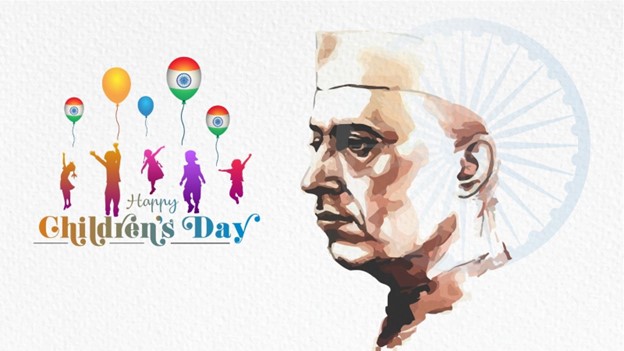Children’s Day in India celebrated annually on November 14, marks the birthday of India’s first Prime Minister, Pandit Jawaharlal Nehru. This year, falling on a Tuesday, it coincides with Govardhan Puja or the Annakuta Puja, adding a touch of festive fervor.
History and Significance
Dedicated to championing the rights of children and amplifying their voices, Children’s Day underscores the crucial role of education in shaping future citizens. Pt Nehru, affectionately known as ‘Chacha Nehru’ for his deep connection with children, viewed them as the nation’s future assets. His commitment to providing a comprehensive education is reflected in the establishment of pioneering institutions like the All India Institute of Medical Sciences (AIIMS), Indian Institutes of Technology (IIT), Indian Institutes of Management (IIM), and National Institutes of Technology (NIT).
As a role model for generations to come, Pt Nehru's legacy extends beyond his political tenure, leaving an indelible mark on India’s educational landscape.
Why November 14? The Origin of Children’s Day in India
Children’s Day, also referred to as ‘Bal Diwas’ in India, has its roots in the observation of ‘Universal Children’s Day’ on November 20, as designated by the United Nations in 1956. However, following Pt Nehru’s demise in 1964, it was decided to shift the celebrations to commemorate his birth anniversary. Since then, November 14 has been etched into the Indian calendar as Children’s Day, distinct from the General Assembly-led Universal Children’s Day on November 20.
Celebrations and Traditions
Children’s Day unfolds in schools with vibrant programs and entertaining performances orchestrated by teachers. A cherished day for both students and educators, and efforts are made to create lasting memories. Students receive books and personalized cards, and many schools distribute free stationery, adding an element of joy to the celebration.
Additional Insight:
Not only a political luminary, Pt Jawaharlal Nehru's vision for education continues to shape the nation's intellectual landscape. His emphasis on holistic learning paved the way for institutions that have become cornerstones of academic excellence in India. As we celebrate Children’s Day, it is an opportune moment to reflect on the enduring impact of Pt Nehru's commitment to fostering a well-rounded education for the youth.






